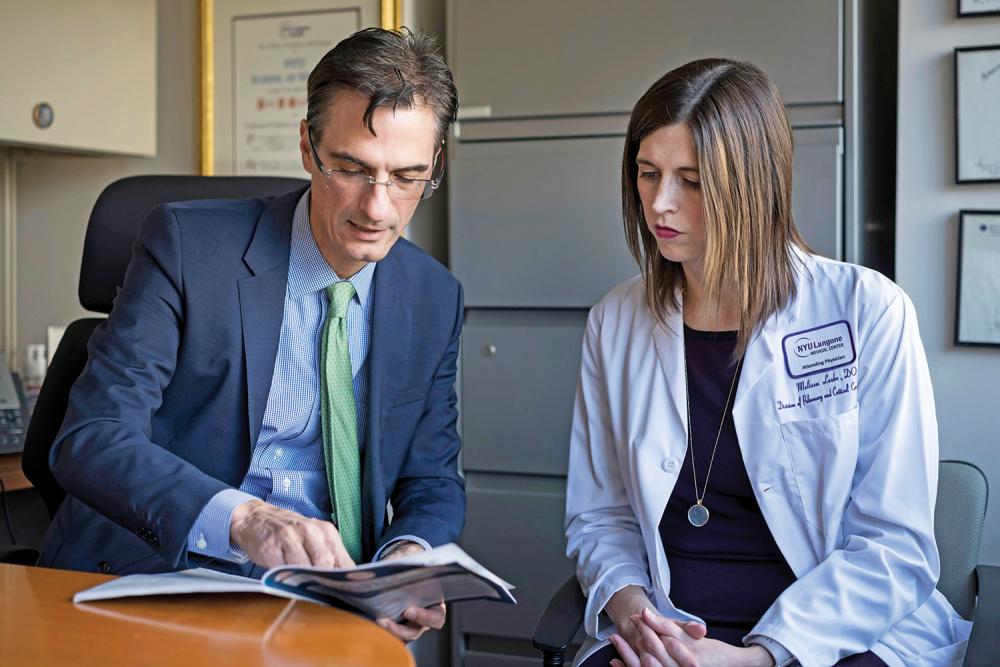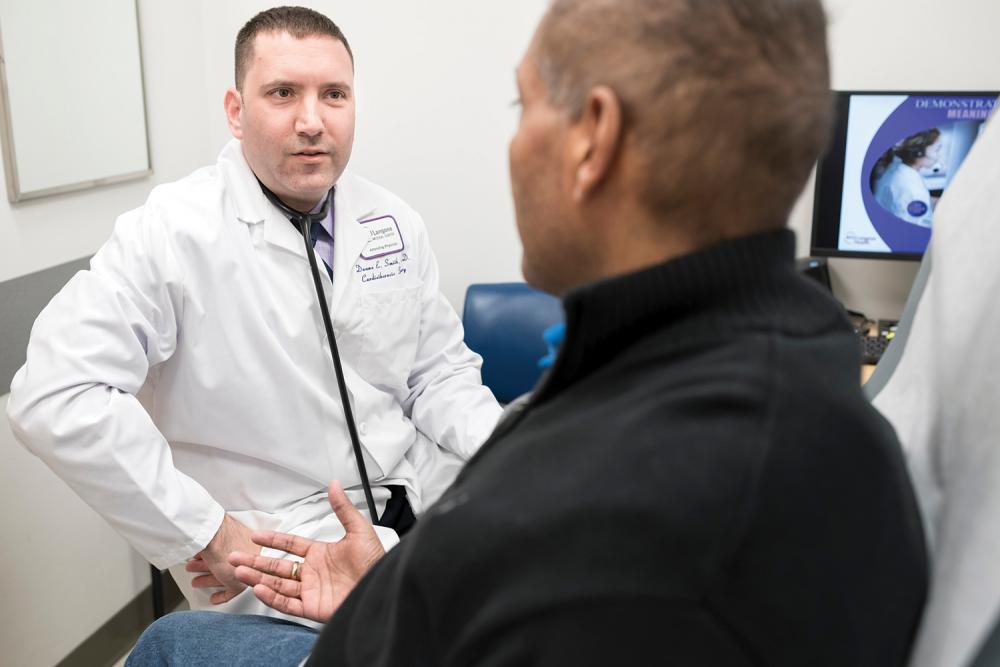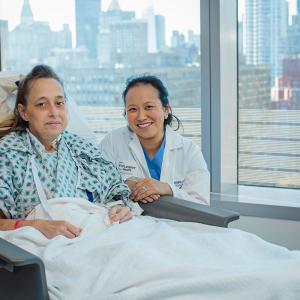In January 2018, NYU Langone became one of three institutions in New York State to offer lung transplantation. The addition of the program follows the winter 2017 launch of the Heart Transplant Program, solidifying the establishment of the Transplant Institute at NYU Langone as a comprehensive center offering all types of solid organ transplantation.
Multidisciplinary Transplant Team
Assistant professor of cardiothoracic surgery Zachary N. Kon, MD, previously on the University of Maryland faculty, will serve as the program’s surgical director, joining Luis F. Angel, MD, professor of medicine and cardiothoracic surgery, and medical director of the Lung Transplant Program.
The lung transplant team joins a center-wide institute comprising transplant surgeons and transplant physicians specializing in hepatology, nephrology, cardiology, endocrinology, infectious diseases, pulmonology, and radiology, along with specially trained transplant nurse coordinators. This multidisciplinary team approach to transplantation ensures comprehensive, personalized care.
“Although the program is new, it is developing within a long-standing transplant infrastructure, with a highly experienced transplantation team at its core,” says Dr. Angel. “Since the program is starting relatively small, we will count on the support of a large academic medical center to make this program an innovative and dedicated program for the care of patients in the pre- and post-transplant phases. We will evaluate and use all existing technologies to improve the availability of organs for our patients on the transplant list.”
Dr. Angel’s team works closely with LiveOnNY, a federally designated nonprofit organ procurement organization that serves the greater New York metropolitan area. Potential transplant candidates can schedule evaluation appointments at both the Manhattan location and at NYU Winthrop on Long Island.
Leading Advances in Transplant Medicine
The program’s early leadership includes a rigorous research emphasis. Through various clinical trials, Dr. Kon brings with him extensive experience in ex vivo lung perfusion technology. The ex vivo process treats donor lungs that appear marginal for transplantation with specialized solutions and gases that can reverse lung injury and remove excess fluids. This enhances the transplant viability of the donor’s lungs, significantly increasing the number of lungs available for the more than 1,600 people now on the national waiting list.
Research to Predict Outcomes for Patients
One of lung transplantation’s most pressing challenges is how to both predict outcomes post-lung transplantation, and identify those patients at heightened risk for chronic lung rejection as early as possible, to maximize the potential for intervention and to prevent declining lung function. Dr. Angel and his team have partnered with 18 transplant centers across the country to develop strategies to address this challenge. Researchers in this collaboration hope to identify the risk factors associated with acute rejection or early chronic lung allograft dysfunction (CLAD), which affects nearly half of all lung transplant recipients by five years post-transplant.
ECMO Program Earns International Pathway to Excellence Award
The multidisciplinary extracorporeal membrane oxygenation (ECMO) program at NYU Langone, which opened in 2015, has earned the Pathway to Excellence in Life Support Award–Silver Level from the Extracorporeal Life Support Organization (ELSO), an international nonprofit consortium that develops and evaluates novel therapies for failing organ systems. ECMO can be used to provide cardiopulmonary support for patients with acute respiratory failure, to provide rapid salvage for individuals with an otherwise untreatable lung injury, or as a bridge to lung transplant. “With ECMO available, we can care for the most critically ill lung patients right here at NYU Langone, rather than send them to another institution,” says Deane E. Smith, MD, assistant professor of cardiothoracic surgery, and surgical director of the ECMO and Cardiogenic Shock Program. “We can get them through their most acute illness and give them options for long-term therapy.”



